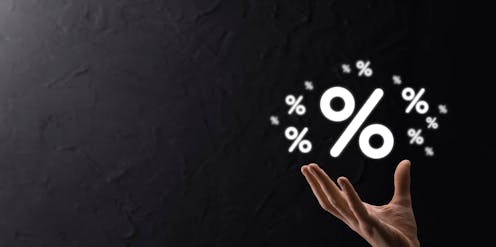Fixed or variable mortgage? The choice of home loan isn't as simple as you might think
- Written by Kevin Davis, Emeritus Professor of Finance, The University of Melbourne

In times like these, when there is great uncertainty about what will happen to interest rates, borrowers get lots of advice about whether to go fixed or variable. Unfortunately, a lot of it is not well founded.
For example, anyone who tells you to lock a fixed rate mortgage now before rates rise, is basically talking rubbish.
The idea it would necessarily result in you paying less interest over the life of the loan is wrong.
With minor exceptions, banks set their fixed rates based on their expectations of future changes in interest rates. They have armies of economists and analysts factoring all available information to do the calculations.
If they expect general rates to climb, they will set their fixed rates correspondingly higher than their variable rates. If they expect rates to fall, they will set them correspondingly lower.
It’s how the rates they pay are set too. When banks borrow at fixed rates, those are usually based on expectations of future movements in interest rates.
It’s hard to beat the bank
It means that the bank’s expectation of what it will get from a customer over the life of a fixed loan ends up close to its expectation of what it will get from a customer over the life of a variable loan. It gets the same sort of profit either way.
Of course, as a customer you might disagree with the bank’s expectation of future interest rate movements. You might want to back your judgement.
Good luck with it, but I’m not at all sure the typical borrower has the information and analytical skills needed to work these things out better than the typical bank.
It is true that even the banks can (and sometimes do) get it wrong. The future is rarely what has been predicted. But banks are generally less likely to get it wrong than their customers.
Fixed loans can produce nasty surprises too
For borrowers considering whether to go fixed or variable, there are other things to consider. For fixed loans, the monthly payments are locked in for a set number of years. For many that’s a good thing. They know for certain that (over the period the loan is fixed) their payments won’t climb beyond what they expect to pay.
But there’s a danger. When the fixed term expires, what they are charged might jump by quite a lot, as happened in the United States[1] in the leadup to the global financial crisis.
If one bank offers fixed rate loans at a lower margin over its floating rate than does other banks, that may be a case for choosing its fixed rate loan over that of its competitors (if for other reasons you were minded to take out a fixed-rate loan).
But the difference might also reflect a host of other explicit and implicit charges the borrower needs to be aware of. And some banks might be setting rates aimed at exploiting borrowers biased towards one or the other type of loan.
Read more: The RBA signals the end of ultra-cheap money. Here's what it will mean[2]
Some small banks might also offer different packages of rates because of a wish to induce borrowers into either fixed or floating rate loans to better reflect characteristics of their funding mix.
But for banks of any substantial size, this is highly unlikely. They are able to use wholesale and derivative markets to manage any interest rate risk from mismatch between assets and liabilities.
The message is to beware of any advice that suggests either fixed or floating is a better deal. Consider what matters for you. Your ability to deal with the risk of changes in your repayment obligations is likely to be more important.
References
- ^ United States (www.rba.gov.au)
- ^ The RBA signals the end of ultra-cheap money. Here's what it will mean (theconversation.com)
Authors: Kevin Davis, Emeritus Professor of Finance, The University of Melbourne













